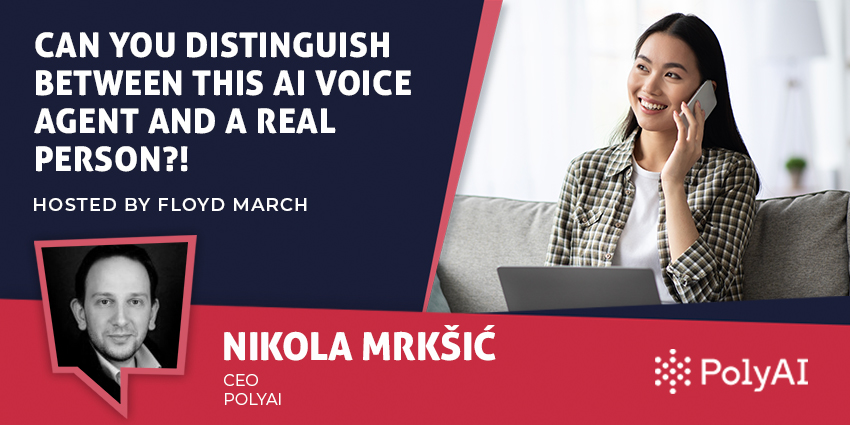AI agents reason, adjust, and automate tasks across the enterprise.
Customer support teams can deploy AI agents to automate customer queries.
However, that’s only one use case.
AI agents will have a much bigger, broader impact on the contact center over the coming years.
Indeed, AI agents will augment the roles of contact center employees, automating much of their daily work. That includes reps, supervisors, managers, quality analysts, planners, etc.
While contact centers may build their own AI agents, expect CCaaS providers to embed them into their solutions to help service operations take advantage of the technology.
Underlining this, Gartner predicts that 33 percent of enterprise software applications will include agentic AI by 2028.
CCaaS applications will not be an exception. Indeed, some contact center solutions providers already onboarding AI agents.
As these spread, they will mechanize new tasks, and more use cases will come to the fore.
Here are ten potential applications, with massive potential to transform the contact center.
- Proactive Customer Service Agents
AI agents can detect signals in external systems that indicate a customer issue. From there, they can act to resolve that problem before the customer reaches out.
There are many possible examples of this. For instance, a proactive AI agent may communicate updates during a weather emergency, reschedule bookings, and remind customers of safety protocols. That’s not only helpful but demonstrates that the business cares.
Also, consider an industry-specific example. In healthcare, an AI agent may check a patient’s records to send reminders for checkups. It could even auto-suggest appointment times/dates based on availability and recorded patient preferences.
If the customer agrees to the time, the AI agent could then automatically schedule it. If the customer doesn’t agree, it may share alternative options.
Those are two of many examples that could change the nature of many contact center operations.
Notably, a CCaaS provider with CPaaS on the back end will likely be best placed to orchestrate and deliver these proactive AI agents. As such, that may soon become a more significant contact center buying consideration.
- Pre-Emptive Customer Service Agents
Instead of proactively solving a customer issue, there are opportunities for AI agents to stop a problem from happening in the first instance. That’s pre-emptive customer service.
An excellent example is an AI agent that listens to customer interactions and picks up on subtle customer statements regarding their preferences.
For instance, a customer may make statements like: “I don’t start work until noon.” An AI agent may funnel that insight into the customer’s CRM profile, ensuring they don’t receive outbound comms after midday.
Such an AI agent use case may also bolster the CRM with valuable first-party data that helps personalize future customer experiences.
- Reactive Customer Service Agents
Older contact center virtual agents require brands to predefine the conversations the bot will encounter and tell them what tasks to perform. That rigidity drove customers crazy.
Generative AI changed this by powering virtual agents that could understand intent and surface relevant knowledge content to help solve many queries without programming decision trees.
Yet, AI agents can go further. They may trigger actions in third-party systems, unlock new data and knowledge, and reason to its accuracy.
If unsure, it can escalate. If certain, the AI agent may adapt its responses to the individual customer and automate more conversations.
With the emergence of proactive, pre-emptive, and reactive AI agents, Gartner predicts that agentic AI will automate 80 percent of customer service queries by 2028.
- AI Agent Receptionists
Contact centers may not want to automate every customer query. Some offer upsell/cross-sell opportunities, while others benefit from human empathy.
Still, AI agents can act as receptionists to benefit the customer service experience.
For instance, they may route the customer by considering their intent and scouring quality assurance (QA) data to determine which agent typically handles these queries best.
Additionally, they may ask customers questions in the queue and feed that additional context to the live agent to support their troubleshooting process.
In the future, AI agents may also consider intent data to rearrange the desktop so reps can easily access everything they will likely need to solve the query quickly.
Interestingly, the RingCentral AI Receptionist already offers some of these agentic AI capabilities while handling many reactive service requests.
- Escalation Agents
Sometimes, customers will reach out with a query way above a live or AI agent’s pay grade. Instead, they need to talk to a subject matter expert (SME).
For instance, an AI agent may detect abnormal symptoms during a telehealth conversation. It may then prompt the rep to escalate the case to a specialist, recommend an emergency room visit, or even send an ambulance.
In this case, it enables a timely escalation that saves lives.
Yet, the concept crosses many industries. An AI agent could provide the option to escalate to a back-office SME, route the interaction across the business, and pull a summary of the interaction so far.
Integrated CCaaS-UCaaS platforms will form the backbone of such AI agent use cases.
- Post-Purchase Support Agents
Soon after a customer completes an expensive purchase, some support teams will makes courtesy calls to get ahead of niggling issues and ensure satisfaction.
Some businesses may automate these calls entirely with an AI agent.
Others will still opt for a human agent, as they can get personal, offer reassurance, and build better relationships.
Nevertheless, AI agents can still run post-purchase processes, like sending over setup instructions, suggesting accessories, and scheduling that call.
- Employee Support Agents
Across the enterprise, AI agents may monitor employee well-being to recommend breaks or make emergency interventions when something goes very wrong.
The contact center will likely host the first iterations of these agents, as many operations can already track sentiment data, stress indicators, and performance trends.
With this intelligence, the agent may also make real-time tweaks to the contact center schedule, so the agent may take a longer pause without putting more pressure on the broader team.
By implementing such an agent, the contact center demonstrates its commitment to employee well-being and safety.
- Learning & Support Agents
An AI agent will extrapolate agent performance trends, highlighting topics live reps struggle with. They can then schedule coaching, suggest e-learning, or provide targeted exercises.
In the future, these exercises may include role-plays with customer avatars.
As the rep progresses, the AI agent may also create longer-term coaching plans, recommend skill-building courses, and highlight helpful resources.
Moreover, AI agents may assess a rep’s strengths and communicate that to the contact center routing engine so they receive more queries where they can shine.
- Workforce Agents
Intelligent workforce management (WFM) systems already re-forecast over intervals to ensure forecasting accuracy and adjust schedules.
Yet, there’s an opportunity for AI agents to take this further by taking intent data to spot the types of contacts coming in, reasoning, and adapting schedules more intelligently.
Additionally, AI agents could support planning teams by alerting them to intraday issues and automatically actioning standard operating procedures (SOPs).
Finally, AI agents may also optimize scheduling by communicating to the routing engine that an agent’s shift is about to finish so they receive a query that’s likely simple.
- Fraud-Prevention Agents
In the broader customer experience, AI agents will soon detect unusual activity on a customer’s account, freeze it temporarily, and notify the customer.
Upon receiving the alert, they can confirm or dispute the activity.
Similar AI agents may soon enter the contact center, alerting live agents to attack signals, sharing guidance, and helping mitigate attempts at fraud.
With its AI receptionist, CPaaS capability, and UCaaS expertise, RingCentral is evolving its CCaaS platform and preparing for a future of AI agents.
For more on its contact center portfolio, visit RingCentral.







